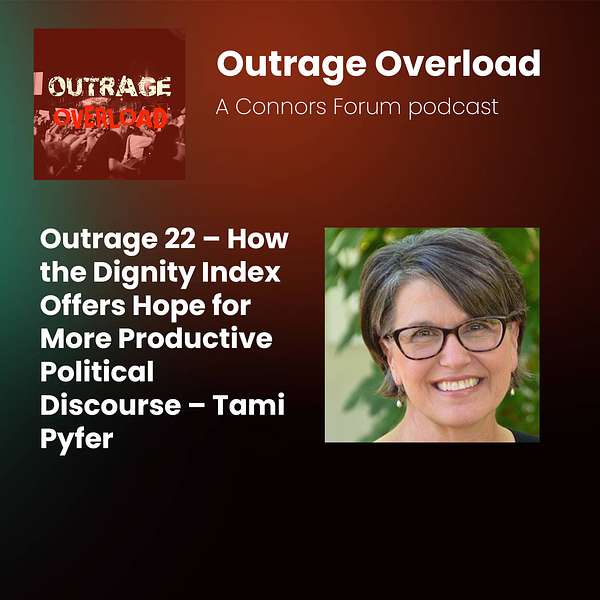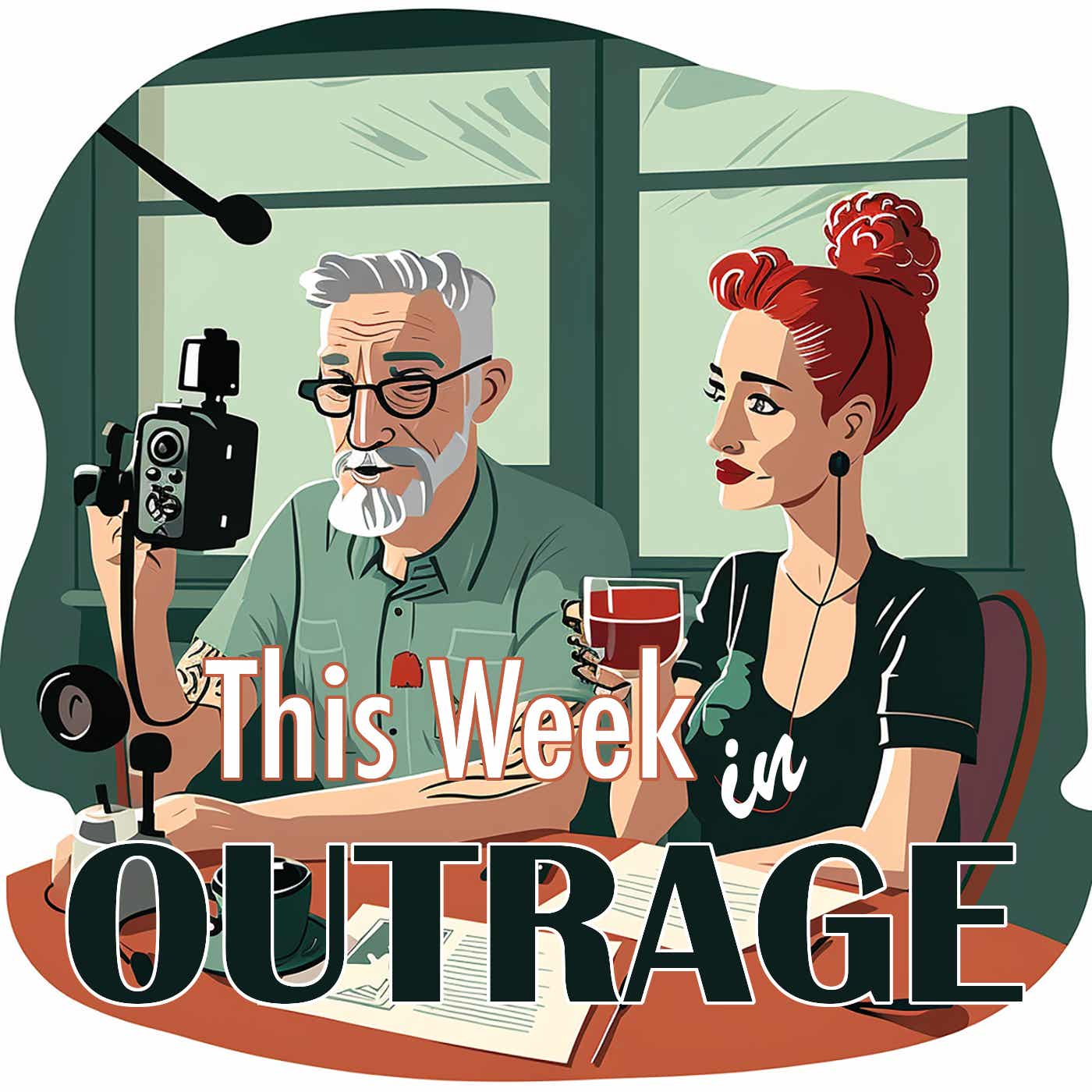
Outrage Overload: Staying grounded through science and balanced perspectives
If you're angry, frustrated, or scared about the state of politics and media and looking for thoughtful, balanced discussions, this podcast is for you. About 30 minutes every few weeks. It will change your life.
Outrage Overload explores the extreme polarization and political bias dominating politics and media today. We dive into the anger and outrage that drive divisions between people, distort the news, and fuel political violence. Each episode features leading scientists, researchers, authors, and community leaders tackling topics like outrage fatigue, toxic polarization, extremism, healthy conflict, disinformation, social media's role in outrage, and the influence of technology and artificial intelligence.
Join us to rediscover humanity in your rivals, improve your mental health, and find practical strategies to feel less stressed and more in control in a world fueled by outrage.
Outrage Overload: Staying grounded through science and balanced perspectives
22. The Dignity Index - Tami Pyfer
Episode 22 – How the Dignity Index Offers Hope for More Productive Political Discourse
Tami Pyfer discusses the Dignity Index, a scale that measures the level of contempt or dignity in public speech. She explains that the index is a problem-solving tool that helps individuals recognize and address contemptuous language. Tami emphasizes the importance of treating others with dignity and engaging in healthy, dignified conversations to bridge the political divide. She shares insights from a pilot project in Utah, where the index was used to evaluate political speech and promote more respectful dialogue. Tami also highlights the need for a new patriotism that values diversity of thought and opinion while maintaining dignity in political discourse.
Key Takeaways:
- The Dignity Index measures the level of contempt or dignity in public speech on a scale of one to eight.
- Contemptuous language shuts down speech, while dignity opens up channels for dialogue and problem-solving.
- The index is a tool for individuals to reflect on their own speech and strive for more dignified conversations.
- The exhausted majority, those tired of divisive politics, can play a role in promoting dignity and respectful dialogue.
- The goal is to put dignity on the ballot in 2024, encouraging candidates to use dignified language and incentivizing dignity in political campaigns.
Quotes:
- "We believe that you can't solve a problem if you can't name it and define it and measure it." - Tami Pyfer
- "We can't solve problems, political problems, by hating each other. And we can't solve them if we have contempt for each other." - Tami Pyfer
- "Contempt shuts down speech. The dignity index doesn't shut down speech. We want to open up speech." - Tami Pyfer
- "We want diversity of thought and action and speech. We want to bring in diverse voices and perspectives to better problem solve." - Tami Pyfer
- "We want to put dignity on the ballot in 2024 and raise national awareness of the language of contempt and the language of dignity." - Tami Pyfer
About The Guest(s):
Tami Pyfer is a pioneer in promoting respectful and productive political discourse. She has been at the forefront of the Unite movement, a national nonprofit organization that aims to ease divisions and toxic political divides in the country. Tami is the co-founder of the Dignit
Show Notes:
https://outrageoverload.net/
Follow me, David Beckemeyer, on Twitter @mrblog or email outrageoverload@gmail.com. Follow the show on Twitter @OutrageOverload or Instagram @OutrageOverload. We are also on Facebook /OutrageOverload.
HOTLINE: 925-552-7885
Got a Question, comment or just thoughts you'd like to share? Call the OO hotline and leave a message and you could be featured in an upcoming episode
If you would like to help the show, you can contribute here. Tell everyone you know about the show. That’s the best way to support it.
Rate and Review the show on Podchaser: https://www.podchaser.com/OutrageOverload
Intro music and outro music by Michael Ramir C.
Many thanks to my co-editor and co-director, Austin Chen.




